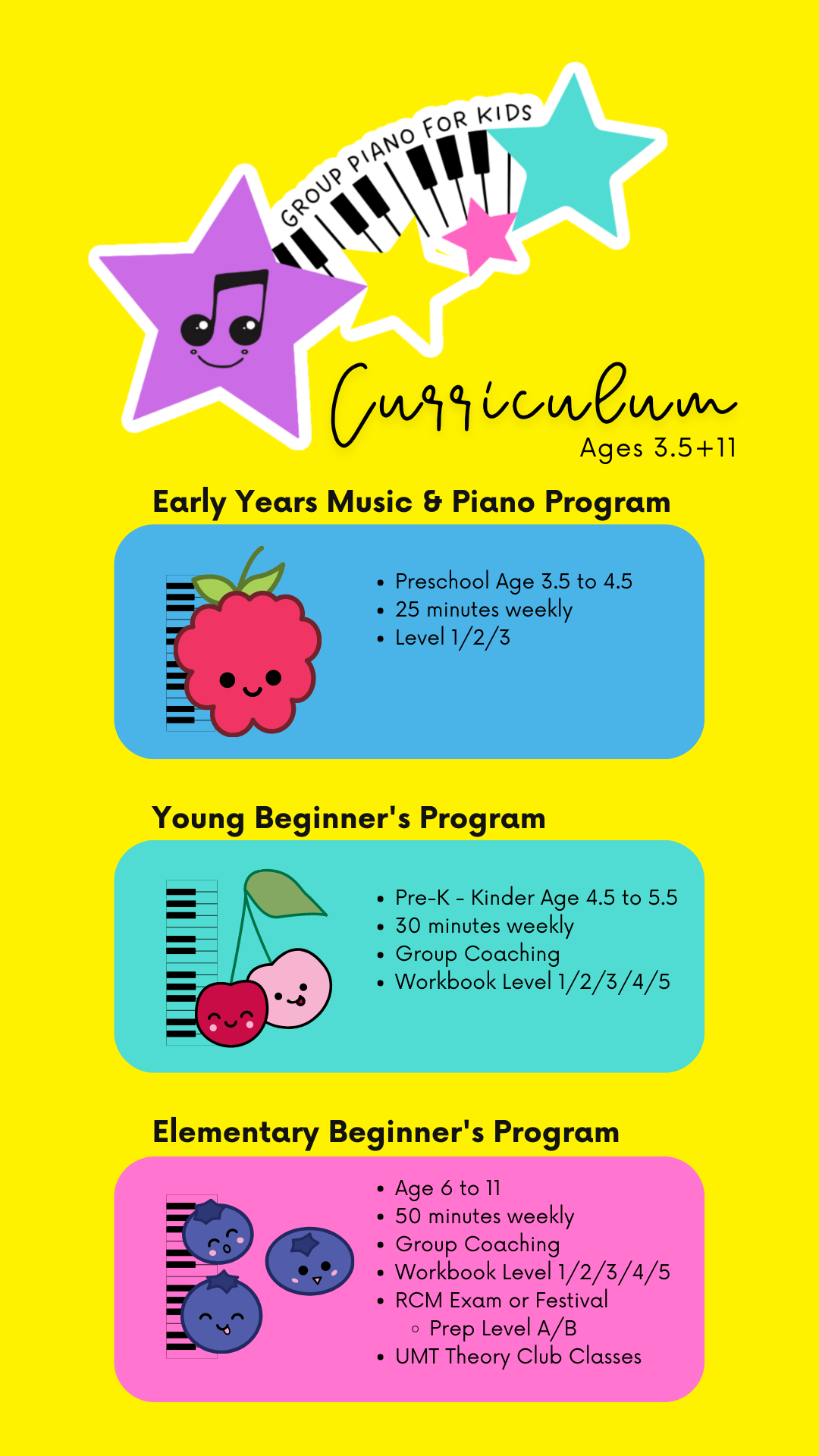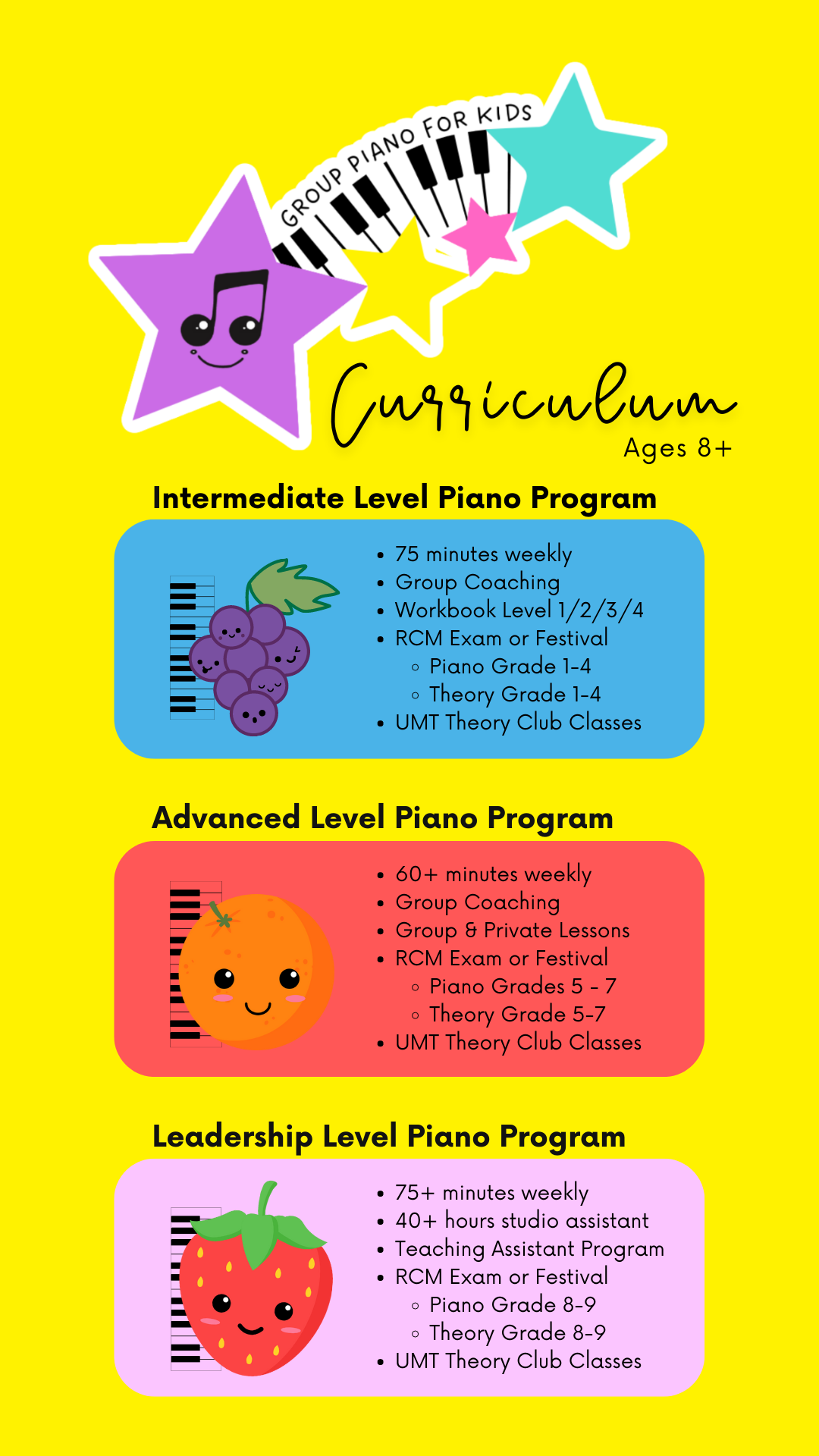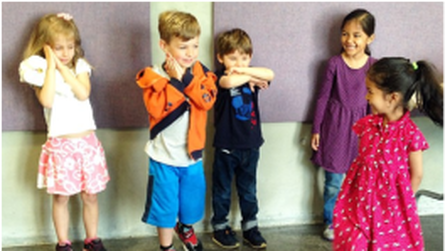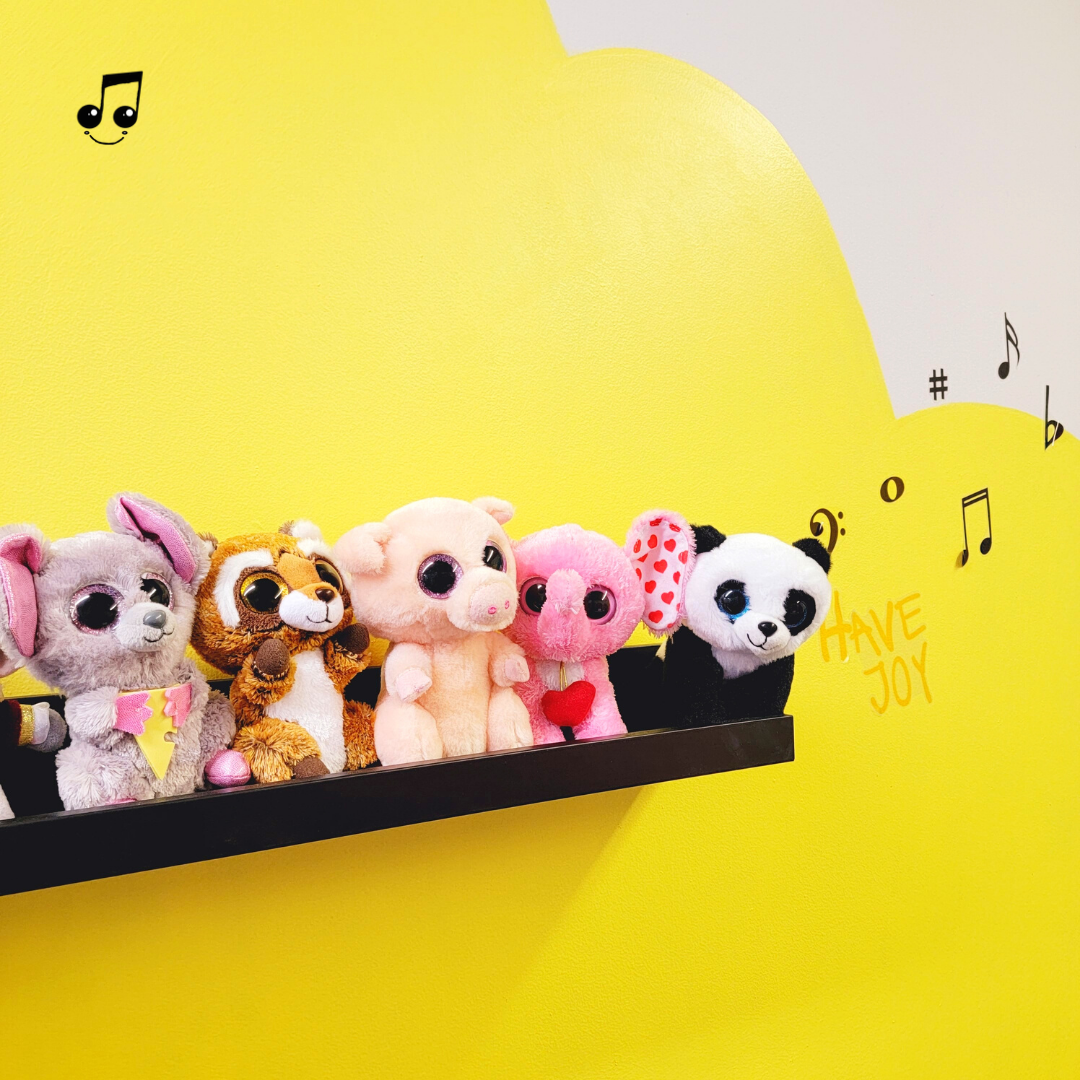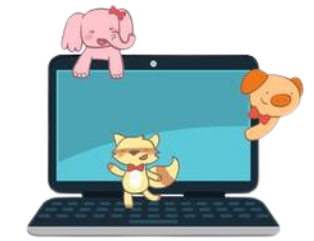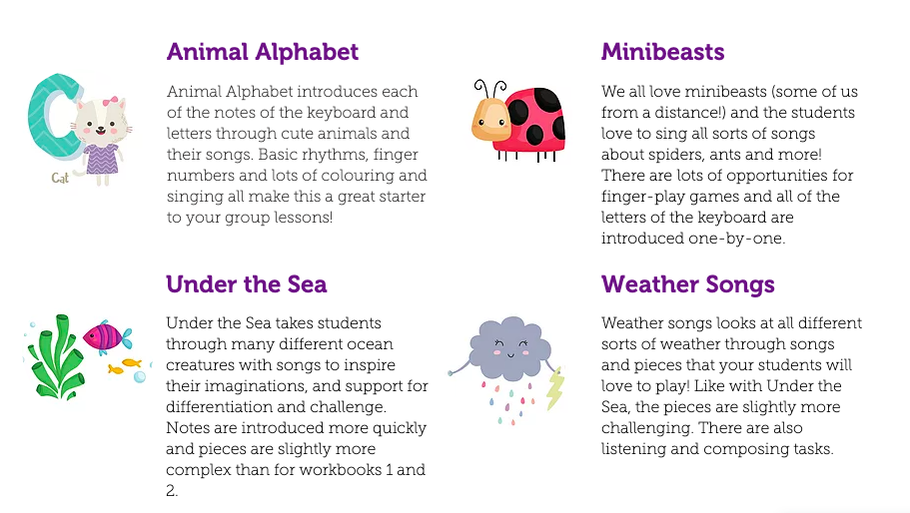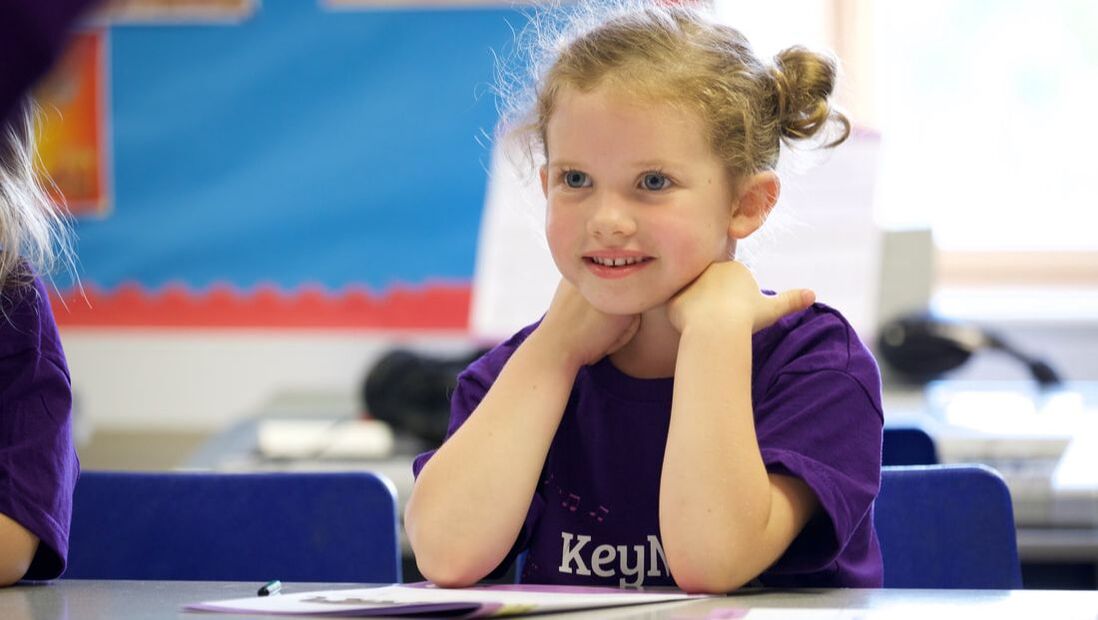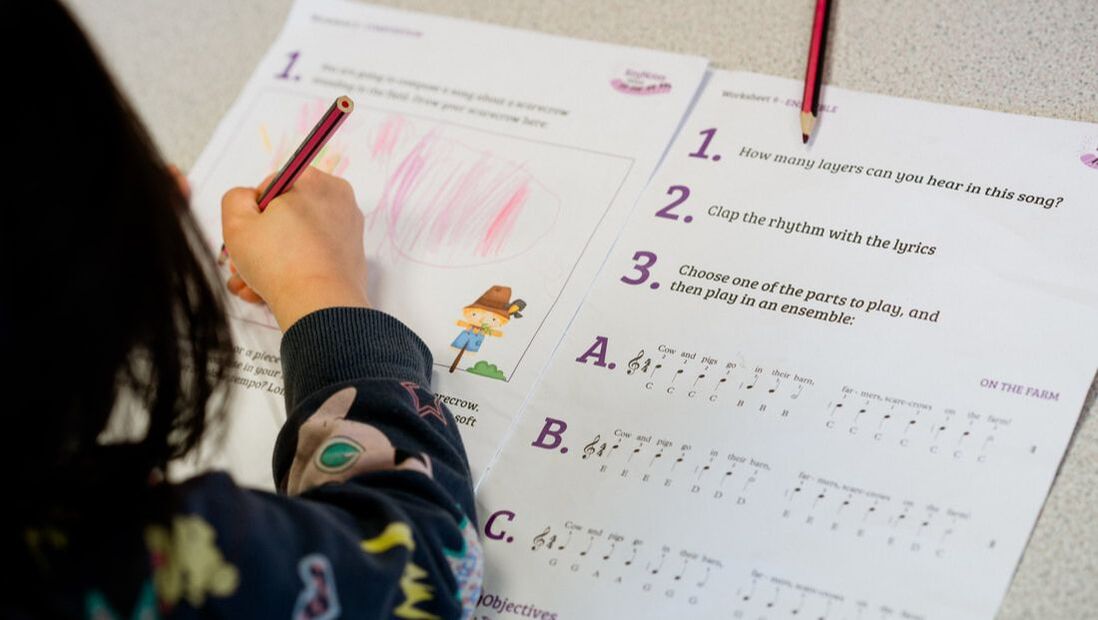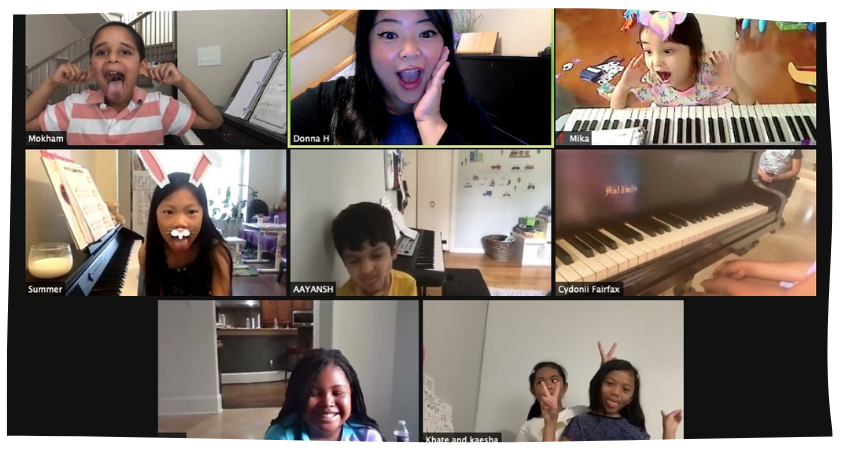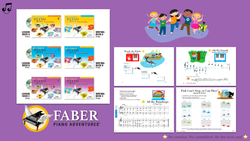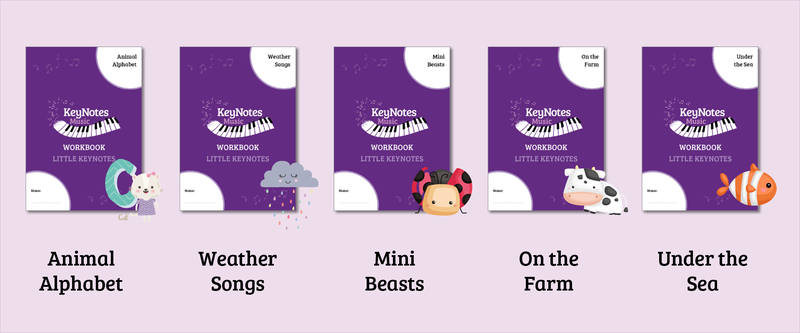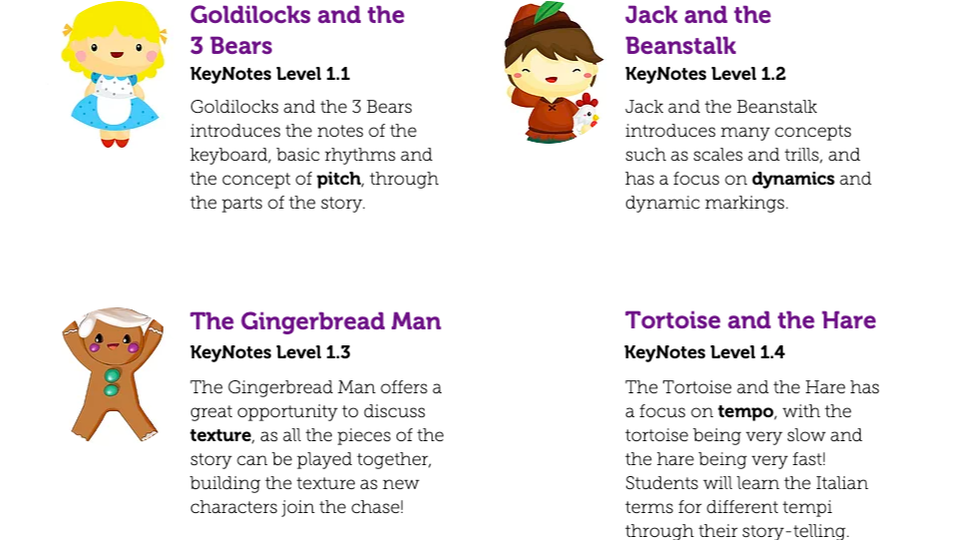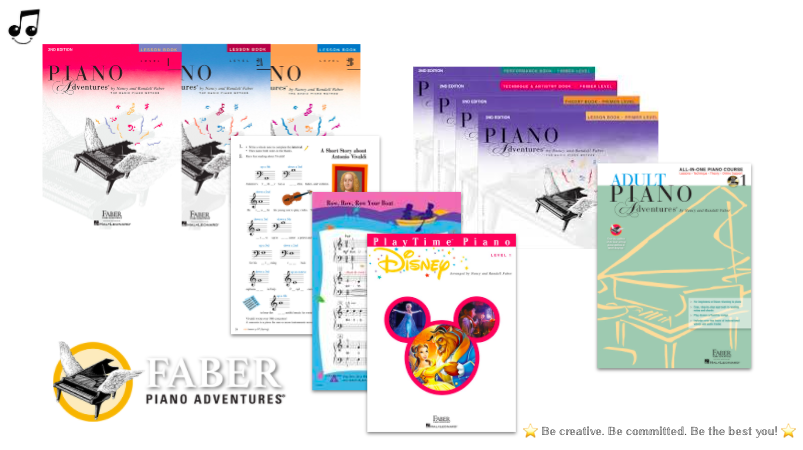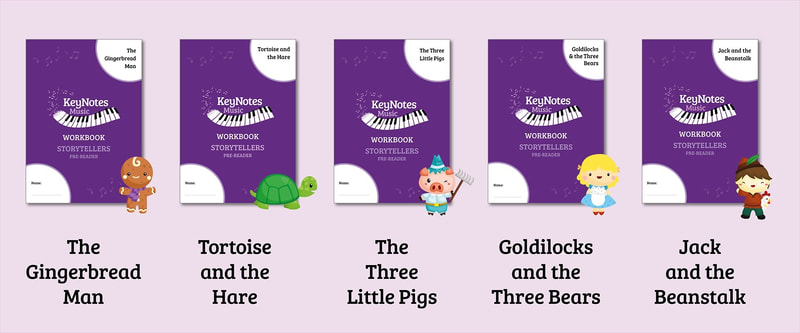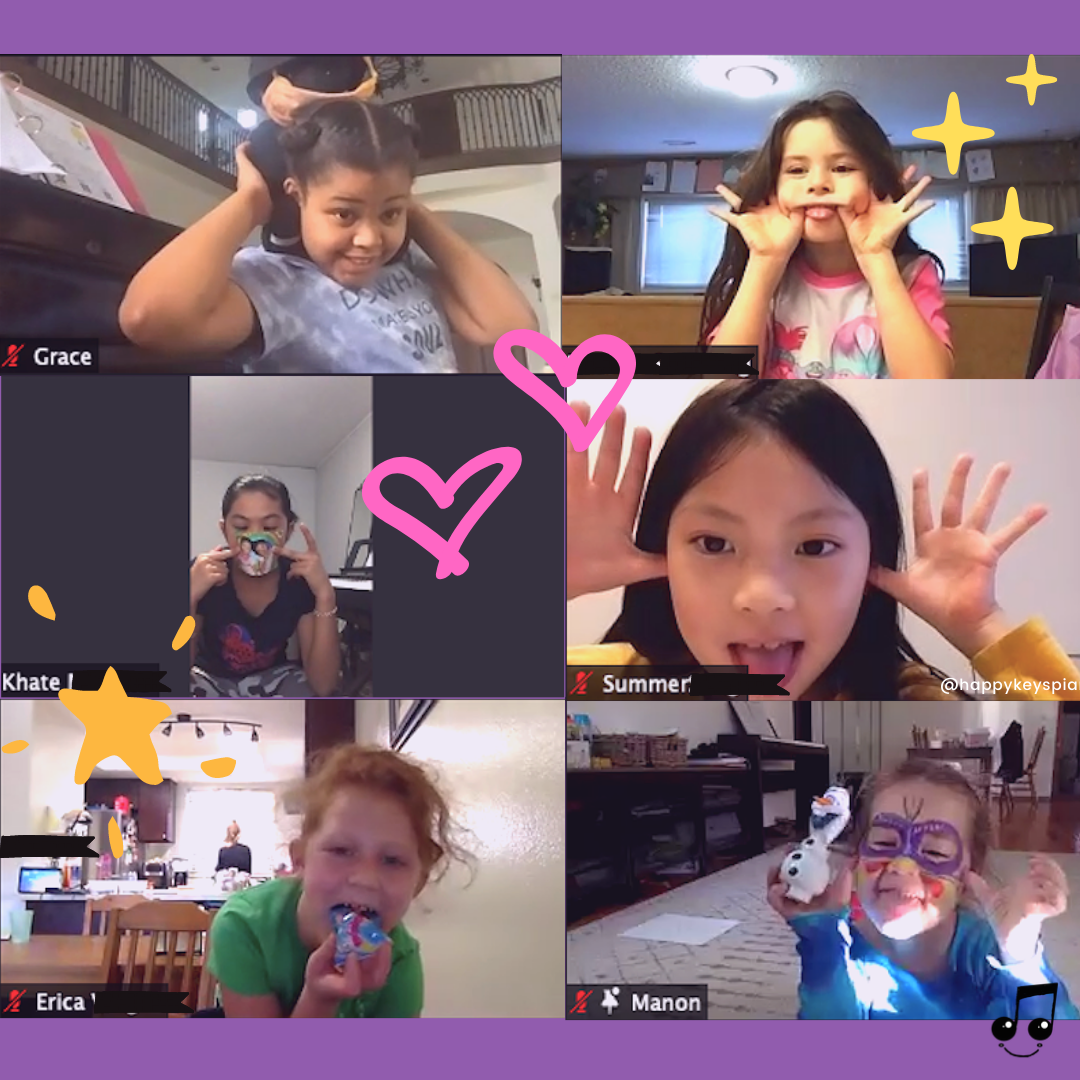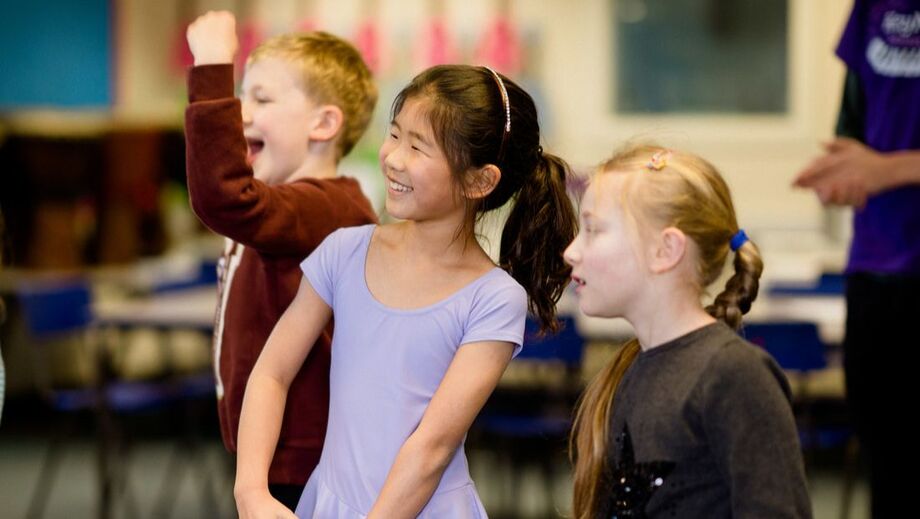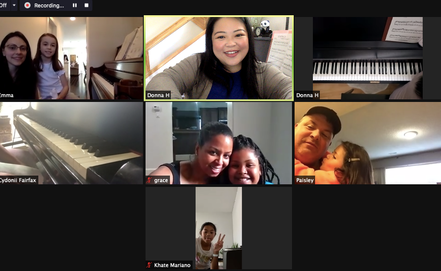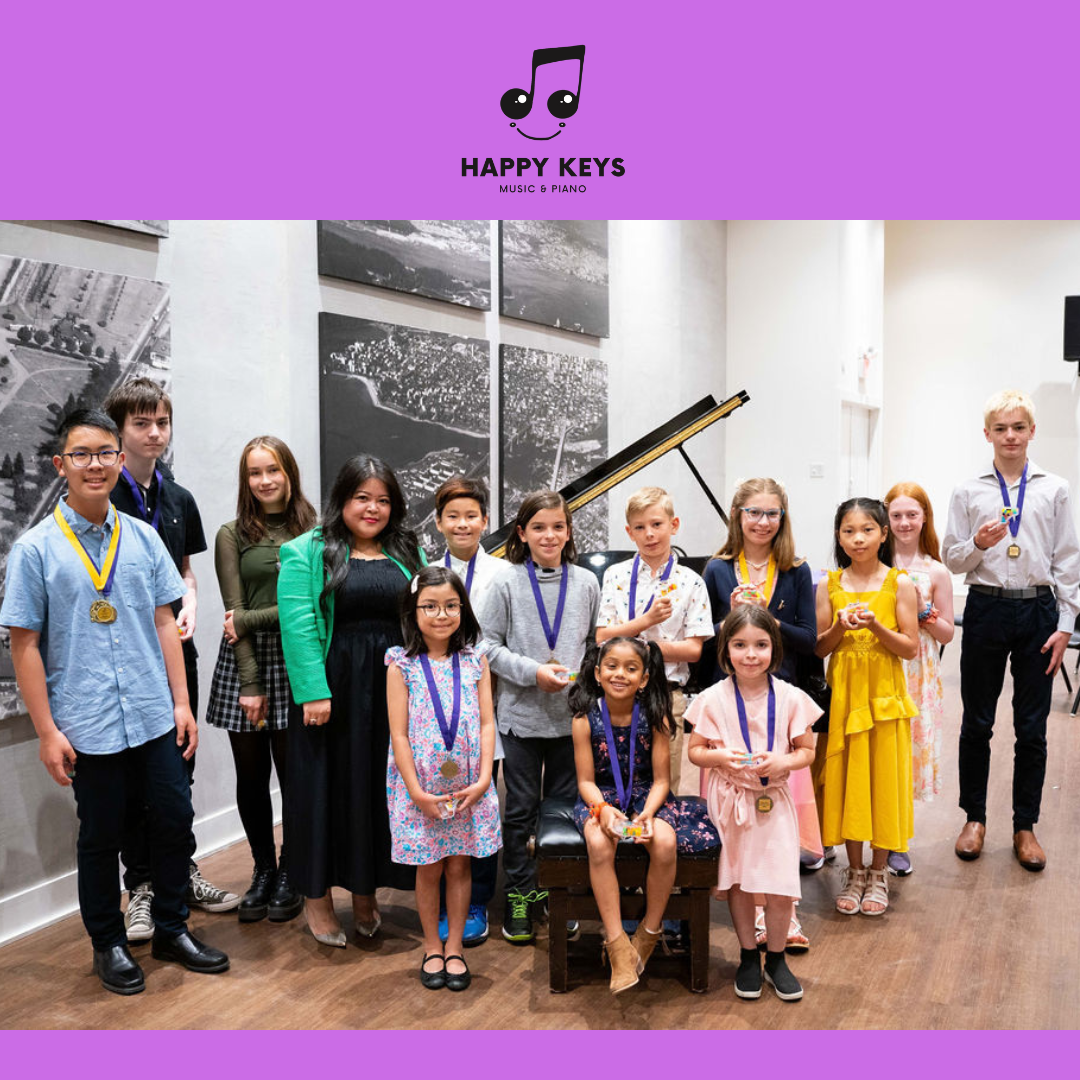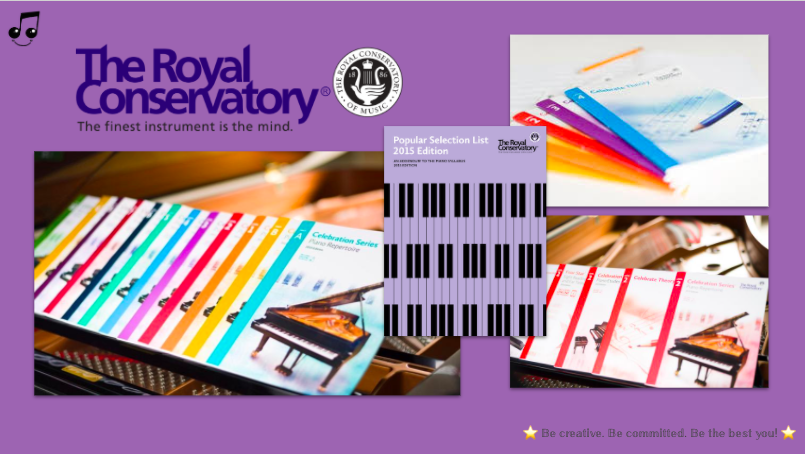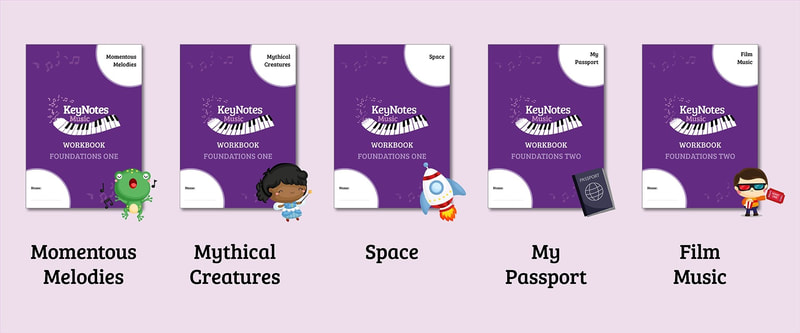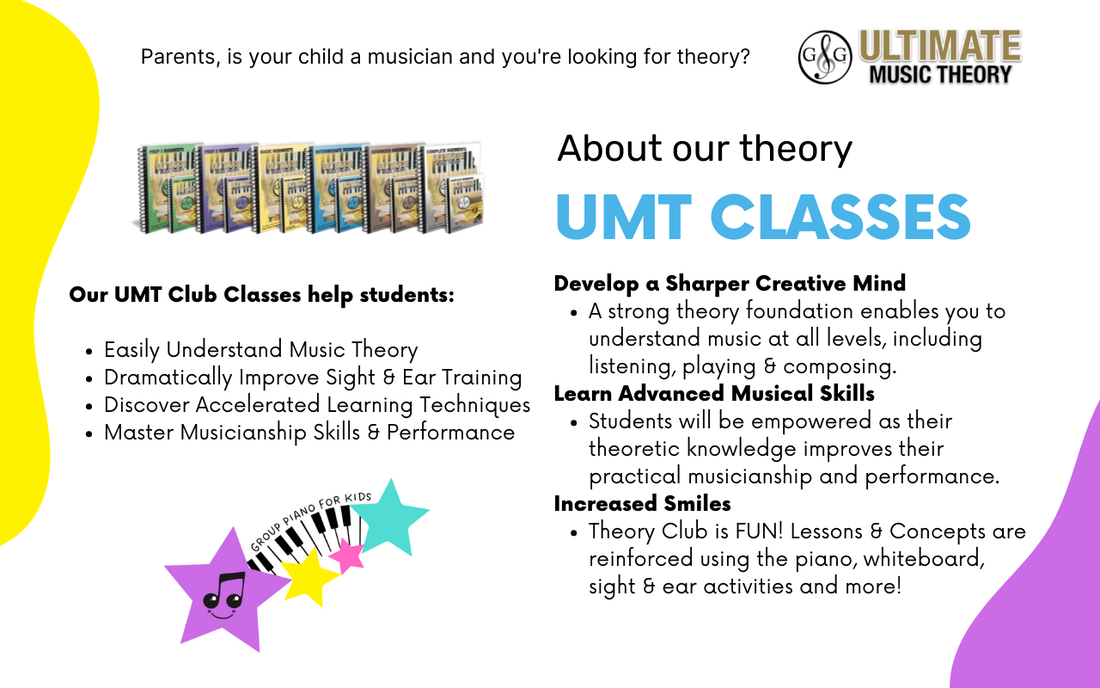What method books do you use?
Over the years, we've upgraded our piano teaching methods to ensure we keep up with what clicks with children and their curiosity, interests, and joy for learning. We customize a program specifically for your child's learning and while we emphasize the value of learning the traditional elements of classical piano, we also love to make sure your child's FIRST piano learning experience is fun, engaging, and child-centered. This could include singing, improvisation, art, games, videos, apps, and more!
Our Happy Keys Music & Piano group piano for kids programs offer a cyclical and consistent structure approach to teaching and learning which allows students to revisit concepts and deepen their understanding each week. Along with our levelled challenges, students of various abilities are able to be in a group class. This also allows us to intake new students throughout the year and add new times and dates.
Our piano school uses a combination of tried and tested method books, technology, and follows pedagogical and examinable requirements. These method books may include a combination of Wunderkeys, Alfred’s Piano, Piano Adventures, Supersonics Piano, Piano Maestro, and the Royal Conservatory of Music (RCM) and many other applications through the iPad such as Tonara. We are authorized to offer the KeyNotes Group Piano Program (4+) and Harmony Road Music Program exclusively and these are group piano programs that are internationally recognized. We invest in these programs yearly to ensure we keep up to date with what our students' needs are.
Our Happy Keys Music & Piano group piano for kids programs offer a cyclical and consistent structure approach to teaching and learning which allows students to revisit concepts and deepen their understanding each week. Along with our levelled challenges, students of various abilities are able to be in a group class. This also allows us to intake new students throughout the year and add new times and dates.
Our piano school uses a combination of tried and tested method books, technology, and follows pedagogical and examinable requirements. These method books may include a combination of Wunderkeys, Alfred’s Piano, Piano Adventures, Supersonics Piano, Piano Maestro, and the Royal Conservatory of Music (RCM) and many other applications through the iPad such as Tonara. We are authorized to offer the KeyNotes Group Piano Program (4+) and Harmony Road Music Program exclusively and these are group piano programs that are internationally recognized. We invest in these programs yearly to ensure we keep up to date with what our students' needs are.
Early Years Music & Piano (3.5-4.5 y.o.)
|
Join our Wunderbies friends and meet Beethoven Bear and Mozart Mouse in a fun group piano and musical adventure through the Music for Little Mozarts and WunderKeys for Preschoolers Piano Program!
This group lesson includes: singing, listening, movement, rhythm activities, and beginning activities on the keyboard. This group piano program has 3 levels with each level consisting of 13 sessions each. This program is best suited for children who have been to childcare or preschool and have shown an interest in learning the piano and developing their find motor skills. Program Duration: 25 min per week Practice Commitment: 40 to 50 minutes per week in total Parent Participation: Required for online at all times. For in-person, last 5 minutes of each lesson. |
Sample Skills & Concepts
|
Musical Elements
Pitch Names/Notation
Listening
Singing
Movement
|
Techniques & Articulation on Piano
Rhythms & Time Signatures
Keys
Musical Instruments
|
Young Beginner's Piano (4.5-5.5 y.o.)
|
We are super excited to offer the Little KeyNotes Group Piano program for ages 4.5-5.5, providing foundations of piano playing for our budding learners, using songs, and games.
This program introduces students to musical elements (i.e., dynamics, tempo, structure, pitch, melodies, pre-reader - keyboard notes, technique (i.e., bubble hand, 5 Finger Scales), rhythm, time signatures, and songs! Students will obtain secure knowledge of keyboard geography, finger independence, basic rhythms, and the ability to apply learning to other activities and tasks. This program is best suited for students who are learning notes on the keyboard, building keyboard awareness, and are ready to have fun learning with others. There are 5 levels in this program. We recommend taking "Animal Alphabets" first, and then you can choose in any order after. Students do not need to complete all 5 levels in order to move onto the next program level. Practice Commitment: 60 to 75 min per week in total Parent Participation: Required for online at all times. For in-person, last 5 minutes of each lesson. Please Note: Students need to know their alphabets A-G and numbers 1-5 in order to fully start the Young Beginner's Piano Program. |
Skills, Concepts and Theory
|
Musical Elements
Repertoire
Composition Singing
Pitch Names/Notation
|
Music Appreciation
Techniques & Articulation
Rhythms & Time Signatures
Scales, Chords & Keys
|
|
|
Sample Session
|
Elementary Beginner's Piano (6-11 y.o.)
|
We are super excited to offer the KeyNotes Storytellers Group Piano program for ages 6-12, providing foundations of piano playing for our budding learners, using songs, and games. There are 4 fun fairytale-based story workbooks in this program and at the end of our 12 weeks, we will do a group performance called "Watching Week" on our 13th class.
Meet new friends, jump right into line notes, learn at your own pace, and most importantly, learn a new musical skill! This program is best suited for students who are ready to learn notes on the staff, enjoy fairytale stories, and are ready to grow their ensemble playing skills and piano technique. There are 5 fun workbooks in this program and at the end of our 12 weeks, we will do a group performance called "Watching Week" on our 13th class. There are 3 levels in the Foundations One program. Successful completion of book of Foundations One may lead to Prep A / Prep B Royal Conservatory of Music Piano. Companion books will be used in addition to the lesson books which will include: music theory, technique sight-reading, and repertoire. Students will be encouraged to take their first RCM Prep A/B exam as a part of completing the Elementary Piano Level. Program Duration: 50 min per week Practice Commitment: 75 to 90 min per week in total Parent Participation: Required for online at all times. For in-person, last 5 minutes of each lesson. Please Note: Students who have completed the Little KeyNotes Program can join Storytellers. Students have have never had piano lessons before can also join the Storytellers.
|
First Session: Goldilocks & the 3 Bears (Recommended)
Next Sessions: Jack & the Beanstalk, The Gingerbread Man, The Three Little Pigs, Tortoise and the Hare (Taken in any order) In addition, we may combine additional method books and materials to supplement our group class learners. Piano Adventures® (5+) For students taking their first exam, an additional "add on" RCM prep group or private sessions will be required. |
Skills, Concepts and Theory
|
Musical Elements
Pieces
Composition Singing
Technique & Articulation
|
Music Appreciation
Pitch Names/Notation
Rhythms & Time Signatures
Scales, Chords & Keys
Ear Training
|
Intermediate Piano (Grade 1 to 4)
|
We are super excited to offer the KeyNotes Foundations Group Piano program for students who have successfully completed the Happy Keys Piano Elementary Beginner's Piano Program.
This program is best suited for students who are ready to further develop their piano reading fluency skills, exploring various genres of music, and engaging in topic-based songs, games, and of course the group setting. There are 5 fun workbooks in this program and at the end of our 12 weeks, we will do a group performance called "Watching Week" on our 13th class. There are 2 levels in the Foundations Two program. Successful completion of book of Foundations Two may lead to Grade 1 Royal Conservatory of Music Piano. Companion books will be used in addition to the lesson books which will include: music theory, technique sight-reading, and repertoire. Students will be encouraged to take their RCM Prep Grade 1 and Grade 3 exam as a part of completing the Intermediate Piano Level. For those who are older and are learning piano for leisure and fun, students can continue into the Progressions One program, we can work on chord playing, composition, building technique, specific pieces, and/or anything that you would like to learn! Program Duration: 90 min per week Practice Commitment: 120 to 200+ min per week in total Parent Participation: Required for online at all time to be nearby. For in-person, last 5 minutes of each lesson. Please Note: Students who have successfully completed the Elementary Piano Program will be invited to join. Transfer students who have already started Grade 1 RCM may join depending on availability. For students taking their first exam, an additional "add on" RCM prep group or private sessions will be required. |
Skills, Concepts and Theory
|
Musical Elements
Pieces
Composition & Improvisation Singing
Technique & Articulation
Exams and Festivals
|
Music Appreciation
Sight Reading
Rhythms & Time Signatures
Scales, Chords & Keys
|
Have a question about our program?
We'd love to answer any questions for you.
⭐Be creative. Be committed. Be the best you!⭐

